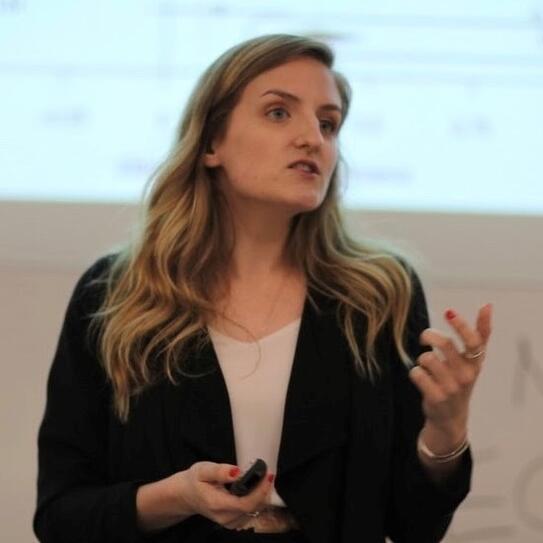Erica Bailey

Why did you choose to pursue a PhD in your discipline?
In my undergraduate economics program, I fell in love with experimental economics. I was considering an economics PhD; however, I graduated early and by the time I knew I would graduate, I had missed the application window. I also was not convinced that economics programs would allow me to study what really interested me. As a way to delay this decision, I took a few years to get some work experience and think about what I really wanted to study in graduate school.
During that time I met with PhD students, and found out about the Organizational Behavior path, which seemed like the sweet spot between decision-making and psychology. I was interested in why people behave the way that they do, how they think about themselves, and how that changes the way they view everything around them. I also got to see first-hand how dysfunctional many organizations and teams can be, which motivated me to stay at a business school.
Why did you choose to come to Columbia Business School for a PhD?
There were two things that drew me to Columbia. First, the faculty at Columbia and especially within the Management Department are so unique – their research spans a number of different fields and methodologies. As someone who felt like I was in-between a lot of different fields with a lot of different interests, I wanted to be at a place where that was celebrated. The second thing that drew me to Columbia is New York City. Great thinkers live psychologically rich lives, and draw upon their life experience in their research. I knew that being in New York City would give me the experiences which would be conducive to my creativity.
What type of research are you exploring?
I study authenticity: what makes you feeling like yourself, and what makes you seem authentic to others. More broadly, I study social cognition and how people view the world through their own unique lenses. To me, it is only by measuring and observing this individual lens that we can understand individual behavior and outcomes. Authenticity is an important experience for workers given that workplaces are strong situations. We often don't feel like ourselves at work. This is detrimental because authenticity is so important for a well-being and belonging. I want to understand how we can improve individual authenticity in the workplace.
What’s your favorite part of the PhD experience so far?
My favorite part of my PhD experience so far has been getting to know my cohort. I started the program with five amazing individuals. We all study different topics and are interested in different areas, but we've helped each other become better researchers through our discussions and friendships. One of my cohort mates is now a coauthor, and it's a joy to learn and experience this program together.
Which faculty member(s) and/or courses influenced you the most, and how?
The faculty member who has influenced me the most is my advisor, Sheena Iyengar. I knew of Sheena’s famous jam study prior to coming to Columbia but I didn't interview with her. It was only after taking our proseminar course where I got to hear about her background and interest in authenticity. Through her lab I had hours and hours of interesting conversations and challenging discussions about what it means to feel like yourself – can we even measure it? When does authenticity happen? And what does it mean to people? In addition, she spent time with me one-on-one talking about the big questions as they relate to research, but also how they relate to being human. I feel very lucky to have found her and to have her guidance throughout the program.
Can you share highlights of your academic experience at CBS?
When people talk about the academic experience in the Management Department at CBS, the number one word that they use is “entrepreneurial.” I have definitely found this to be the case. I'm able to drive my own research agenda, working with faculty at Columbia and other institutions. The sky is really the limit in terms of the questions I can ask and the methods I use to answer those questions.
A great example of this is my work on social movements. I am interested in how voluntary mobilization for a social movement can be predicted by a perceptual lens. This is a very psychological approach to a well-studied sociological construct. In this effort, I have worked closely with Dan Wang, a sociologist by training. Together we developed a way to measure an individual's perception of a social movement. We then used this measure to look at individuals relationships with the Black Lives Matter protests. This is a great example of how I was able to take my interest, combine it with a faculty member's expertise, and examine its relationship with a current event of utmost importance.
What are your future plans and how has your PhD experience translated into growth in your career?
I am currently deciding whether I will go on the market in the fall or in a year from now. I hope to be placed in a tenure-track assistant professorship.
What will you take with you from your CBS experience?
My time at CBS has given me clarity around what I'm really interested in about human behavior. It has also given me the tools that I need to study this behavior in a rigorous way. But the biggest thing I will take away from CBS is the community and relationships I have with both with faculty and with other students. I know that our collaborations and friendships will continue even after I leave Columbia.